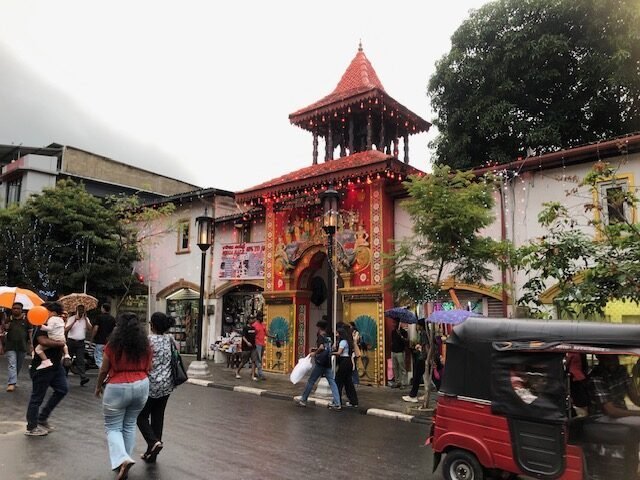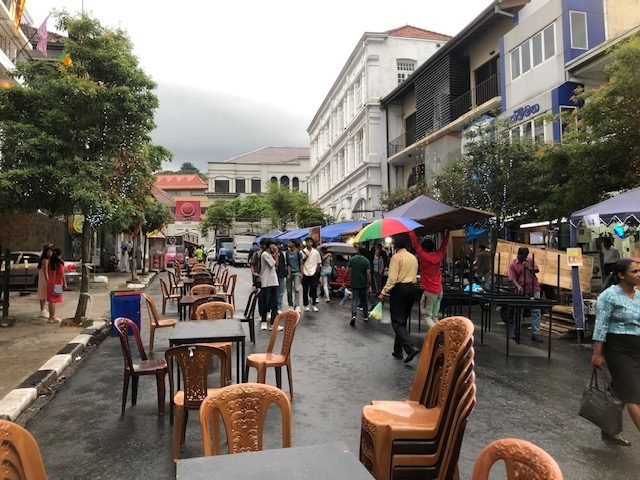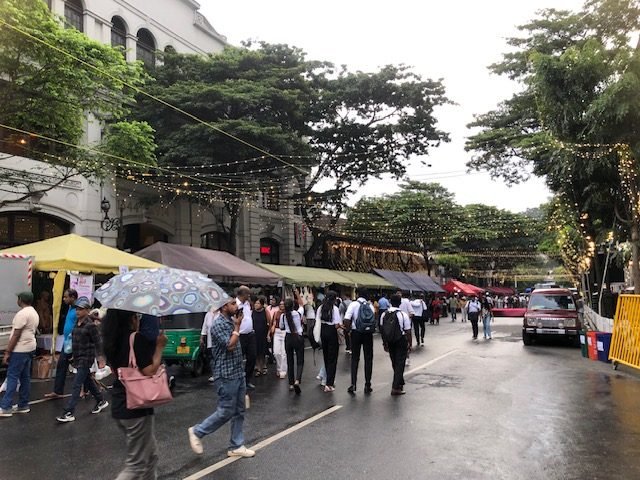


To: To the attention of His Excellency the President of Sri Lanka; The Honourable Prime Minister; The Honourable Mayor of the Kandy Municipal Council; the Municipal Commissioner of Kandy; the Chairman of the Urban Development Authority (UDA); the Director General of the Central Cultural Fund; the Secretary of the Ministry of Buddha Sasana, Religious and Cultural Affairs; representatives of the UNESCO Sri Lanka Liaison Office; members of the Kandy Heritage Planning Committee; civic and environmental advisory boards; local residents, cultural custodians, and community leaders; and editors and journalists of national and regional media.
Kandy Is Not a Nightlife City—It Is a Legacy That Must Be Protected
Subject: Formal Objection to Proposed 24-Hour Nightlife Expansion in Mahnauwara –(Kandy ) “Kandy Night Bazaar (City wind)in the Heritage Zones Date: August 16, 2025
Synopsis:
This is a formal civic objection to the proposed 24-hour nightlife expansion in Kandy’s heritage zones. It argues that such development threatens the city’s ceremonial integrity, environmental stability, and constitutional duty to protect the Buddha Sasana. The term “Bazaar” is critiqued for its cultural misalignment, and the document calls for heritage-sensitive planning that respects Kandy’s identity as a spiritual and ceremonial city.
Respected Officials,
අතීත මතකයෙන් බිඳක් : 2022 අගෝස්තු
‘’මහනුවර යනු මධ්යම පළාතේ අගනුවර වන අතර එය ශ්රී ලංකාවේ දෙවන විශාලතම නගරය වේ. මෙම නගරය ශ්රී ලංකාවේ පුරාණ රජවරුන්ගේ යුගයේ අවසාන අගනුවර වූ අතර දළදා මාලිගාව නිසා බෞද්ධ ලෝකයේ පූජනීය පූජනීය ස්ථානයක් ලෙස පිළිගැනුණි. කෙසේ වෙතත්, මෑතකදී නිසි ලෙස සැලසුම් නොකළ සංවර්ධනය හේතුවෙන් ඓතිහාසික උරුම ප්රදේශයේ තදබදයක් ඇති වූ අතර, අධික රථවාහන තදබදය සහ නාගරීකරණය භූමි ආපදා අවදානමට ලක්විය හැකි ප්රදේශවලට ආක්රමණය කිරීම වැනි දේ ඇති විය. ඊට අමතරව, ඓතිහාසික උරුම ප්රදේශයේ නගර දර්ශනය නිසි ආකාරයෙන් සංරක්ෂණය කර හෝ ප්රතිසංස්කරණය කර නොමැති අතර, මෙය එහි වටිනාකම සහ ආකර්ශනීය බව පිරිහීමට ලක් කළ අතර එමඟින් ප්රදේශය එහි සම්පූර්ණ ආර්ථික විභවය සාක්ෂාත් කර ගැනීමට නොහැකි විය’’.
2015 දී නාගරික සංවර්ධන අධිකාරිය (UDA) විසින් සකස් කරන ලද මහා මහනුවර ප්රධාන සැලැස්ම ඇතුළුව මහා මහනුවර ප්රදේශය සඳහා සංවර්ධන සැලසුම් කිහිපයක් පැවතුනද, ඉහත ගැටළු විසඳීමට ඒවා ප්රමාණවත් නොවීය. මහනුවර මධ්යම කොටසේ සංවර්ධනය පාලනය කිරීම සහ සංවර්ධනයට මග පෙන්වීම සඳහා පවතින සැලසුම්වල නාගරික සංවර්ධන දැක්ම සමාලෝචනය කිරීම අවශ්ය විය.
A Glimpse into the Past: August 2022:
‘’Kandy is the capital of the Central Province and is the second-largest city in Sri Lanka. The city was also the last capital of the ancient kings’ era of Sri Lanka and recognized as a sacred place of worship in the Buddhist world because of The Temple of Tooth Relic. However, recent not-well-planned development caused overcrowded conditions in the historical heritage area, such as heavy traffic congestion, and urbanization encroaching into land-disaster vulnerable areas. In addition, the townscape of the historical heritage area was not conserved or restored in a proper manner, and this deteriorated its value and attractiveness, which prevented the area from realizing its full economic potential. There existed several development plans for the Greater Kandy area, including the Greater Kandy Master Plan formulated by the Urban Development Authority (UDA) in 2015, but they were not sufficient to address the above issues. A review of the urban development vision of the existing plans was needed to control development in the central part of Kandy and guide development’’.
I write to you as a native in the Mahanuwara and lifelong resident of the Kandyan region, deeply concerned about the 24-hour nightlife and commercial activity within the sacred and residential zones of Kandy. This letter serves as a formal objection to any initiative that seeks to transform Kandy into a continuous entertainment and business hub, particularly in areas adjacent to the Dalada Maligawa, cultural corridors, and long-standing residential precincts.
Kandy—Mahanuwara—is not merely a city. It is the spiritual heart of Sri Lanka, a UNESCO World Heritage Site, and a living symbol of Sinhala-Buddhist civilization. From the time of our kings, Kandy was governed with restraint, wisdom, and reverence. Its urban rhythm was designed to uphold peace, dignity, and ceremonial continuity—not to chase economic gain or nightlife trends. The Sinhala-Buddhist leadership, both ancient and modern, has consistently resisted over-commercialization of sacred zones. They understood that the soul of a city is not measured by its profit margins, but by its harmony, cleanliness, and cultural integrity. That wisdom must guide us today.
The expansion of 24-hour nightlife in Kandy poses serious risks to public security, environmental stability, and civic harmony. The Dalada Maligawa precinct, a sacred and high-security zone, is particularly vulnerable. Introducing continuous commercial activity into this area—especially unregulated bazaars operating through the night—would compromise surveillance, crowd control, and ceremonial sanctity. Kandy’s law enforcement and temple security protocols are not designed to manage late-night commercial exposure, especially during hours when criminal activity tends to rise. According to national emergency data, Sri Lanka’s 118 system has recorded a growing number of night-time complaints, including theft, vandalism, and underworld disturbances. Expanding nightlife in Kandy would stretch local police resources and expose sacred zones to unnecessary risk.
Environmental concerns are equally pressing. Kandy’s municipal waste systems are already under strain, particularly during religious festivals when garbage volumes surge tenfold. The introduction of 24-hour commerce would exacerbate this crisis, especially in heritage zones where sanitation must remain pristine. Recent reports from April 2025 indicate that garbage contamination—including human waste—has rendered segregation impossible in several areas. The Gohagoda disposal site is nearing capacity, and night-time activity would introduce uncontrolled waste into sensitive urban corridors. This threatens to turn Kandy’s spiritual heart into a public health hazard, undermining both civic dignity and environmental responsibility.
The proposed expansion also violates the protective intent of the UNESCO-designated buffer zone surrounding the Sacred City of Kandy. This buffer zone was established to safeguard the city’s Outstanding Universal Value (OUV), including its cultural authenticity, ceremonial integrity, and spiritual landscape. UNESCO’s Periodic Reporting Cycle 3 (2023) has already identified weaknesses in the legal framework governing this buffer zone, warning that development pressures—especially commercial intrusion—pose a serious threat to Kandy’s World Heritage status. Introducing continuous nightlife activity into this sensitive area risks not only cultural degradation but also international delisting and reputational damage. It is imperative that municipal and national authorities uphold their commitment to heritage protection and refrain from approving any initiative that undermines the sanctity and global standing of Mahanuwara.
Furthermore, the push for a 24-hour city model is not aligned with the cultural rhythm or civic priorities of Kandyan residents. It is driven by external commercial interests—often expatriate or non-local—seeking profit from tourism and entertainment. Local peasants and native communities have not requested such a transformation, nor do they benefit from it. The proposal reflects a commercial agenda, not a community need. Maintaining a 24-hour city requires massive investment in lighting, sanitation, security, and traffic control. These costs would fall on the Kandy Municipal Council and local taxpayers, without delivering meaningful benefits to native residents. It is an economic burden disguised as development, and it risks alienating the very communities who have preserved Kandy’s peace and heritage for generations.
Kandy’s urban character was never built on commercial ambition—it was shaped by cultural wisdom, spiritual restraint, and civic foresight. From the time of our kings, Mahanuwara was governed with a deep understanding of balance: between ceremony and daily life, between sacred duty and civic order. The city’s layout, its rhythms, and its governance were all designed to preserve peace, not to chase profit. Night-time commerce, entertainment districts, and 24-hour business models were never part of this vision. Instead, Kandy was protected as a spiritual capital, where the Dalada Maligawa stood not just as a temple, but as a symbol of national unity and moral discipline.
The Sinhala-Buddhist leadership—both royal and republican—understood that over-commercialization erodes cultural dignity. They resisted turning Kandy into a marketplace for every passing trend or external demand. Their approach was not anti-development; it was development with purpose. They prioritized harmony over hustle, and heritage over haste. That legacy must not be abandoned in the name of modernity. To reshape Kandy into a nightlife city is to betray the very philosophy that has sustained it for centuries.
Kandy is not Colombo, nor should it be. It is not a port city, nor a commercial capital. It is a heritage city, a ceremonial city, and a guardian of national memory. Any attempt to impose a 24-hour urban model on Kandy ignores its historical identity and undermines the wisdom of its founders. The city’s peace has been maintained for generations—not through economic expansion, but through cultural stewardship. That stewardship must continue.
In light of the concerns outlined above—ranging from public security and environmental strain to cultural misalignment and historical wisdom—I respectfully urge the Kandy Municipal Council, Urban Development Authority, and all relevant civic bodies to reject any proposal that seeks to introduce 24-hour nightlife or commercial expansion within Kandy’s heritage zones. Before concluding, I must draw your attention to the constitutional and civic violations embedded in this proposal. Article 9 of the Constitution of Sri Lanka mandates the State to foster and protect the Buddha Sasana. Any initiative that threatens the sanctity of the Dalada Maligawa precinct or disrupts the ceremonial rhythm of Mahanuwara directly contradicts this constitutional duty. Furthermore, the Kandy Municipal Council’s own urban vision emphasizes heritage preservation, sustainable development, and community-centered planning. The 24-hour nightlife expansion disregards these principles, favoring external commercial interests over native civic needs. It also conflicts with existing zoning laws, sacred area protections, and the spirit of Sri Lanka’s national urban development mission. This letter, therefore, is not merely a personal objection—it is a constitutional reminder, a civic warning, and a cultural defense.
Such a transformation would not only violate the city’s spiritual and civic character, but also impose unnecessary burdens on its residents, infrastructure, and identity.
“In a city shaped by Sinhalese Buddhist heritage and ceremonial urban rhythm, the term ‘Bazaar’ lacks cultural specificity and civic relevance.”
I further recommend that any future urban development plans be subject to transparent public consultation, with special attention given to the voices of native Kandyan communities, heritage custodians, and civic advocates. Development must be inclusive, culturally sensitive, and aligned with the long-term preservation of Kandy’s unique role in Sri Lanka’s national consciousness.
Let us not allow short-term commercial interests to override centuries of cultural stewardship. Let us honor the wisdom of our kings, the sacrifices of our ancestors, and the dignity of our sacred spaces. Kandy is not just a city—it is a legacy. It must be protected, not repurposed.
I remain available for further dialogue, civic consultation, or contribution to any heritage-sensitive planning process. Thank you for your attention to this urgent and deeply rooted concern.
Summary of Legal, Civic, and Heritage Violations:
- Article 9 of the Constitution mandates protection of the Buddha Sasana.
- Disruption to the Dalada Maligawa precinct violates constitutional duty.
- Kandy’s urban plan prioritizes heritage, sustainability, and community.
- Proposed nightlife expansion disregards municipal planning principles.
- Violates zoning laws, sacred area protections, and national urban policy.
- Favors external commercial interests over native civic needs.
- Undermines Kandy’s role as a ceremonial and guardian city.
- Contradicts UNESCO World Heritage guidelines for cultural site management.
- Threatens the integrity of Kandy’s UNESCO-designated buffer zone.
- Disregards the lived rhythms, safety, and cultural continuity of the Kandyan peasantry.
- This objection is a constitutional reminder, civic warning, and cultural defense.
This statement is submitted in defense of Mahanuwara’s ceremonial integrity, constitutional duty, and heritage stewardship—addressed to all civic, municipal, and national authorities entrusted with the future of Kandy.
By Palitha Ariyarathna
JICA Commercial Group Community Group Secretary, Writer, Journalist, and Author, Former Beach Filed Officer and Life Safety Officer.
CEO and Founder of Ceylon Watch

